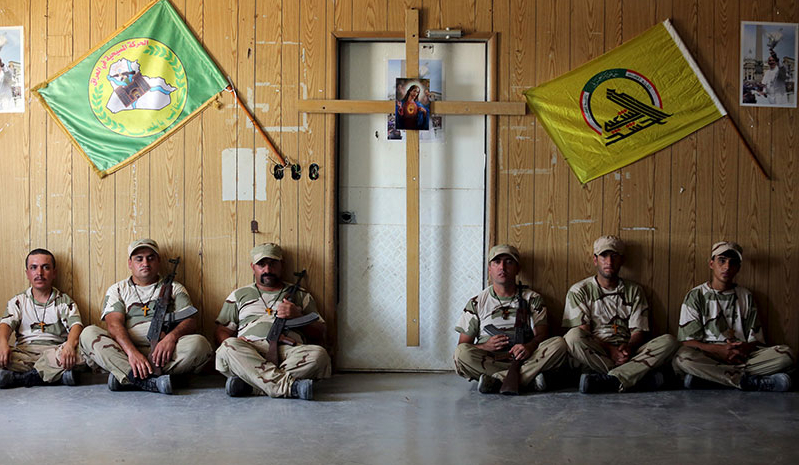
Christians in Iraq have been the target of persecution by the terror group known as ISIS. However, they are trying to consolidate themselves and figure out their future in the Middle East.
In a report published by CNN, Andrew Doran, the founder of In Defense of Christians organization, wrote on how Chaldean Christians are dealing with both ISIS and their future in the region. Some Christians thought their future would like within the framework of Kurdistan, which is protected by the Peshmerga.
"For their part, the Kurds would prefer that Christians serve in the Peshmerga -- a reasonable proposition on its face," Doran wrote. "A small number of Christians do, while others train to protect Nineveh after its liberation from ISIS."
One of those Chaldean Christians is Safaa Elias Jajo, who is part of the local Nineveh Plains Forces, one of several Christian militias in Iraq. ISIS recently occupied his hometown of Telskuf, which served as their local headquarters; they have since been driven out of Telskuf and back to Mosul.
"Telskuf is Jajo's home and, until 2014, was a town of 12,000 Christians," Doran wrote. "He was the last Christian to leave when ISIS advanced here last year and was the first to return when ISIS was driven back toward Mosul."
Jajo, who once served in Saddam Hussein's army two decades ago, elaborated on what has happened to Telskuf. Doran pointed out that within the town, grass is overgrown and houses are leveled.
"ISIS called the owner of this home and told him they would be cooking there," Jajo said.
Jajo added that he spoke to some of his neighbors who have already left Iraq. He and his men hoped to play a part in the liberation against ISIS.
"They will not return until it is liberated," Jajo said, noting that he had 500 people in his unit.
According to Doran, Christian militias operated under the auspices of the Kurdistan Regional Government and the Peshmerga militia. However, he observed that their status was "more theoretical than practical."
"Jajo has been waiting months for the Ministry of the Peshmerga to process his commission," Doran wrote. "His frustration is palpable, though he and the local Peshmerga soldiers, one of whom is present, appear to be on good terms."
Doran reported that Christian militias are tied to political parties in Iraq. However, divisions still remained within the Christian community.
"There is no single Christian militia and no consensus among Christians on their military or political role here," Doran wrote.
However, Jajo told Doran that Christians could work within the framework of Kurdistan as opposed to the Iraqi central government, noting that Kurdistan's constitution called for "special autonomy" for minorities. He also hoped the United States and other Western countries would help them.
"We need support and we need it quickly. We want to fight," Jajo said.
Doran cited the fact that under current U.S. law, weapons shipments can only go to lawful governments. This meant that both the Peshmerga and Christian militias had to rely on weaponry provided by the Iraqi government in Baghdad.
"The Christians of Telskuf and elsewhere in Iraq have been failed -- by the U.S. government, which did not protect them after the 2003 invasion; by the government in Baghdad, which failed to give Christians an equal status; by their political leaders, in Iraq and the West, who have been sidetracked by rivalries and arcane squabbles rather than seeking unity through compromise," Doran wrote.
Doran reported that the status of Christians in Iraqi Kurdistan will be discussed quite a lot in the coming months. At the same time, some Christians thought that the Kurds were using them as political pawns in their quest to get Western backing.
"We have asked for the opportunity to serve at the front, but we've not been given the opportunity," Jajo said.
Jajo still thought Christians should be a part of the liberation of Kurdistan and Nineveh regions in order to stake an equal claim to a future in both areas.
"If there is a plan to liberate Christian areas, we want to be part of it," Jajo says.
What happened in Telskuf may be a sign of things to come for Christianity's future in Iraq, according to Doran.
"Christianity here will not be extinguished," Doran wrote.






